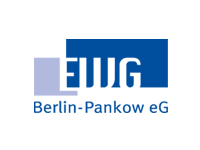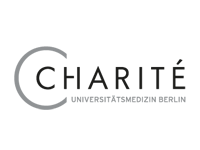News
Ihre Auswahl
produzieren / 05.01.2021
Single Mouse Trials: mimicking clinical phase II trials in PDX models with manageable costs and efforts
The long and successful collaboration of EPO with the Charité University Hospital in Berlin recently led to the following publication:
Combination of copanlisib with cetuximab improves tumor response in cetuximab-resistant patient-derived xenografts of head and neck cancer
The article has been published in the peer-reviewed journal Oncotarget (Oncotarget, 2020, Vol. 11, (No. 41), pp: 3688-3697).
Background
Head and neck squamous cell carcinoma (HNSCC) represents the 6th most common type of cancer and despite recent advances remains an area of high unmet medical need. Around 66% of HNSCCs harbor genomic alterations in one of the major components of the phosphoinositide 3-kinase (PI3K) signaling pathway, making PI3K an attractive target.
EPO´s contribution
EPO has established a thoroughly characterized panel of more than 70 HNSCC patient-derived xenograft (PDX) models (HPV +/-). To explore the activity of the PI3K inhibitor copanlisib in monotherapy and in combination with the EGFR inhibitor cetuximab, 33 PDX models were selected out of this panel for a mouse clinical trial together with Bayer AG.
How YOUR projects could benefit from it
We successfully applied the one mouse, one tumor, one treatment trial design on our HNSCC PDX panel to establish a sound preclinical rational for the evaluation of copanlisib in combination with cetuximab in a clinical setting. This demonstrates that a large number of heterogeneous tumors can be evaluated and a clinical phase II trial can be mimicked in PDX models with manageable costs and efforts.
Mouse clinical trials in oncology drug development
Around 85% of preclinical agents entering oncology clinical trials fail to demonstrate sufficient safety or efficacy to gain regulatory approval. This high failure rate highlights the continued limitations of the predictive value of existing preclinical models and clearly shows an urgent need for experimental systems that better replicate the diversity of human tumor biology in a preclinical setting. While PDX models faithfully recapitulate human tumor biology and predict patient drug response, studies with small numbers of models have limited value in predicting potential clinical-trial response at the population level. Mouse clinical trials (MCTs) are population-based efficacy studies mimicking human trials. For these, the single mouse study design is a feasible and very cost-effective approach to reliably screen a large numbers of models with diverse genetic characteristics.
Important considerations for your study
Similar to clinical trials, rational design of MCTs requires statistical power calculation and sample size determination, thus the number of mouse models as well as the number of mice per model needs to be carefully considered. In general, the study design depends on factors such as the study aims, the efficacy of the applied drugs and the available resources. For example, when there is only a limited number of suitable PDXs, e.g., PDXs carrying a particular mutation or PDXs of a specific subtype, the number of mice per PDX could be increased to boost statistical power. Our scientific and bioinformatics team will actively support you to tailor a study design specifically for your needs based on detailed statistical and bioinformatics analyses.
Possible applications
There is a broad variety of possible applications for single mouse trials. These include exploration of new drug combinations as demonstrated by our new publication, comprehensive analysis of one tumor entity, identification of biomarkers for predicting treatment responses, screening of a large number of compounds in diverse tumor populations and many more. Please reach out to learn more!
Source: EPO Gmbh Newsletter December 2020: Single Mouse Trials
epo-berlin.comAlle News im Überblick
News Buch Berlin
Campus Berlin-Buch ist Fahrradfreundlicher Arbeitgeber: Mit dem Zertifikat in „Gold“ ausgezeichnet
Mit neuer Infrastruktur und vielfältigen Aktionen fördert der Wissenschafts- und Biotechcampus nachhaltige und gesunde Mobilität. Er ist einer von fünf Berliner Arbeitgebern, die vom ADFC mit Gold aus...
weiter ...Happy Birthday Gläsernes Labor!
25 Jahre Gläsernes Labor auf dem biomedizinischen Campus Berlin-Buch: Anlass für eine große Konferenz für Lehrkräfte und eine Feier mit den Wegbegleiter:innen am 19. April 2024
weiter ...„Dörfer des Nordens“ – Individuell erlebbare Touren durch die Dörfer von Pankow und Reinickendorf präsentiert
Bei einer feierlichen Präsentation stellten heute die Bezirksbürgermeisterinnen von Reinickendorf, Emine Demirbüken-Wegner, und von Pankow, Dr. Cordelia Koch die neuen Tourenpläne „Dörfer des Nordens“...
weiter ...Termine Buch Berlin
06.05.2024, 09:00
Realtime PCR und digital PCR Kurs
Der RealTime PCR und Digital PCR Kurs richtet sich an erfahrene PCR Anwender*innen und an Einsteiger*innen. Wichtige PCR Grundlagen werden erörtert, bevor die RealTime PCR besprochen und Genexpression...
weitere Informationen22.06.2024, 16:00
/ Campus Berlin-Buch
Lange Nacht der Wissenschaften 2024
Save the date!
weitere Informationen








